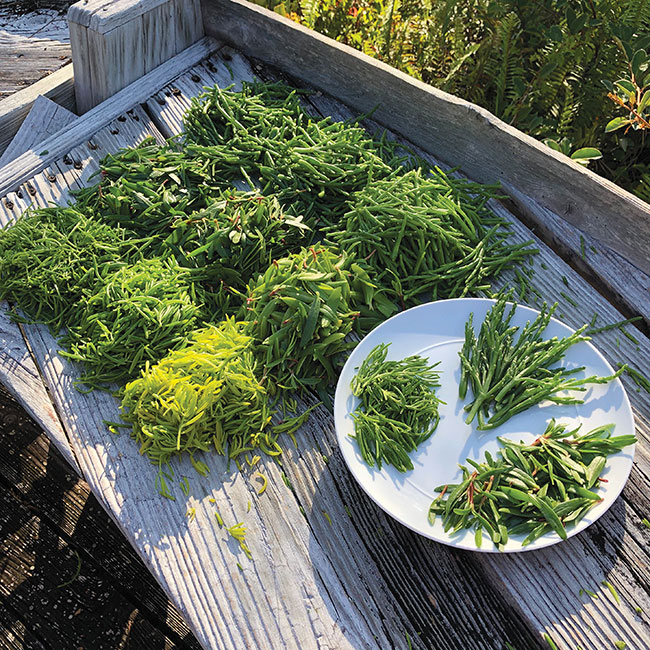
Vegetables from the sea
September 23, 2020
By
Liza Mayer
Florida researchers gain progress in aquaculture of nutritious greens
 Sea asparagus, sea purslane and saltwort were co-cultured with other marine animals in a land-based IMTA system
Photo: Megan Davis/Florida Atlantic University
Sea asparagus, sea purslane and saltwort were co-cultured with other marine animals in a land-based IMTA system
Photo: Megan Davis/Florida Atlantic University In what could be the first step toward a new aquaculture sector in Florida, researchers at Florida Atlantic University (FAU) have succeeded in growing nutritious sea vegetables using aquaculture while minimizing waste and maximizing efficiency and productivity.
The team from FAU’s Harbor Branch Oceanographic Institute raised three types of saltwater vegetables: sea asparagus, sea purslane and saltwort. All three are considred a vegetable, herb or garnish.
The team aimed to demonstrate and identify the optimal growth criteria for the plants, determine markets, work with chefs to develop recipes, and understand consumers’ acceptance of the product.
The plants were raised in different substrates: sand, clay pebbles, and water only in a land-based Integrated Multi-Trophic Aquaculture (IMTA) system that also housed fish, shrimp, urchins, oysters and macroalgae.
By the end of the study, researchers had grown a total of 187 plants, losing only two plants, which demonstrates their exceptional survival, the team said. The edible parts of each plant accounted for more than half of the plant, most notably saltwort as 75 percent of it was edible. The plants did better overall in the sand substrate.
The next step is to determine the economics of growing these plants and the market values. The reserachers will share their findings with future producers, with the hope of generating a new aquaculture industry in Florida and elsewhere.
“Sea vegetables are a great source of minerals and would be a healthy addition to any meal,” said Dr Paul Wills, principal investigator of the IMTA project, a research professor and associate director for research at FAU’s Harbor Branch.
Dr Megan Davis, a research professor, aquaculture and stock enhancement, is co-principal investigator in the study. Other team members are Dr Jordon Beckler, Dr Ikuko Fujisaki-Butler; Obby Tapley; Richard Mulroy; Richard Baptiste; Matt Quinan; Lynn Wilking; and Brian Cousin, who are all with FAU’s Harbor Branch.
Advertisement
- Salmon species, not origin, determine nutritional quality: study
- Researchers make breakthrough in tilapia virus resistance





